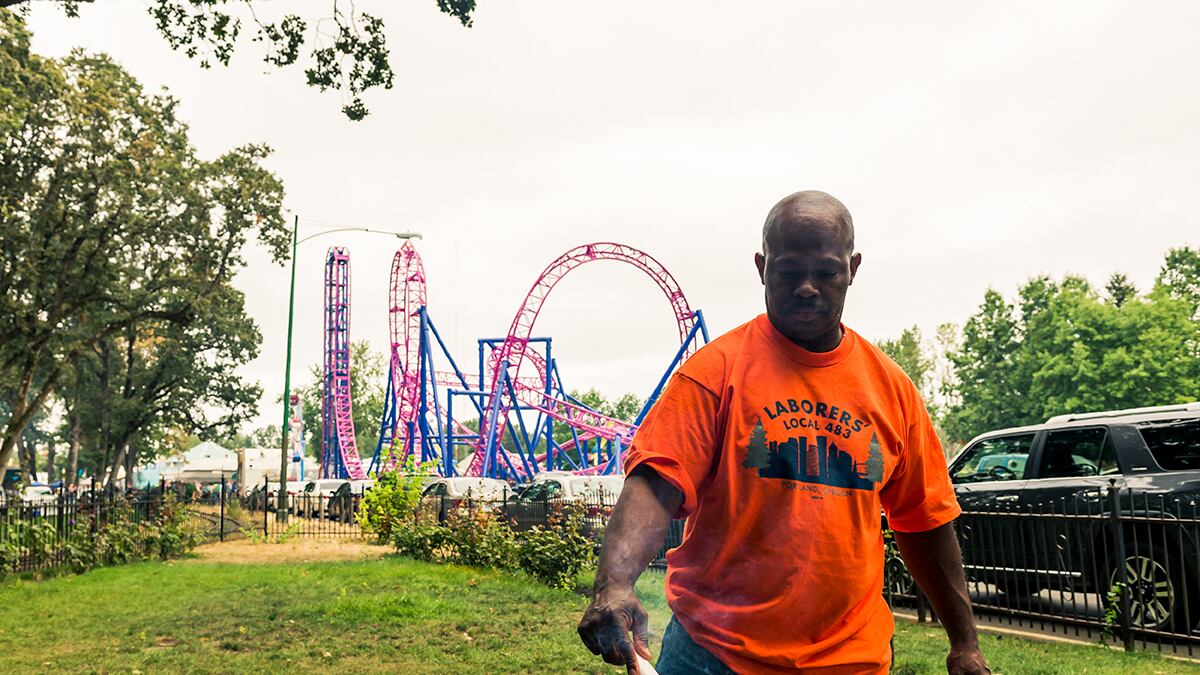A union that represents thousands of construction workers across the state is backing a plan by City Commissioner Carmen Rubio to fix the city of Portland’s broken permitting system, fanning the flames of a battle between Rubio and her council colleague, Mingus Mapps, over how best to fix the dysfunction.
“We are heartened by Commissioner Rubio’s proposals to reform the permitting process. We absolutely see the value in moving towards a centralized permitting structure, and are supportive of all the iterative steps we need to get there,” wrote Ryan Nielsen, a legislative representative of The Laborers’ International Union of North America Local 737, in a letter to all five Portland City Council members last week.
“Bringing together, onto one team, folks who work primarily on permitting-related processes and getting them onto one administrative and technological system is just good sense. Moreover, Commissioner Rubio’s proposed reforms will be good for workers in the trades.”
Mapps and Rubio will present competing plans to their City Council colleagues next month to fix the city’s fractured permitting system, which crosses seven bureaus and, developers say, slows the pace of housing production.
Rubio wants to consolidate all permitting staff under a new permits office. Mapps wants to take a year and a half to sift through the city’s building code and get rid of competing and duplicative requirements that, he says, are at the heart of the issue. (Mapps calls his and Rubio’s plans “fundamentally incompatible”).
That LiUNA, on behalf of about 3,000 construction workers, offered its support for Rubio’s plan is significant.
LiUNA has two major branches in Oregon. Local 737, which sent last week’s letter, does not represent any workers at the city of Portland. Its sister branch, Local 483, represents 615 city employees that work as park rangers, street cleaners and wastewater treatment workers, and in pollution control at city facilities.
The construction workers represented by Local 737, while not city employees, work on many projects impacted by the city’s permitting process.
“The permitting process reverberates down and impacts the entire industry,” Nielsen wrote in the letter. “It becomes incredibly difficult for both contractors and the workforces they employ when the permitting process is fraught with unpredictability.”
Last week, four bureau directors sent a letter to members of the City Council backing Mapps’ plan—and saying Rubio’s would “slow progress” of ongoing pilot projects aimed at speeding up permitting. The signatories included the directors of the Transportation, Environmental Services and Water bureaus and Portland Parks & Recreation. Mapps oversees the first three. Commissioner Dan Ryan oversees parks.
The director of the permitting bureau, Development Services, which Rubio oversees, did not sign the letter.
City leaders have failed for three decades to fix the city’s permitting system.
The current competing plans by two city commissioners, however, also have intense political undertones: Mapps is running for mayor in 2024, and Rubio, if she decides to run, could be his stiffest competition.

